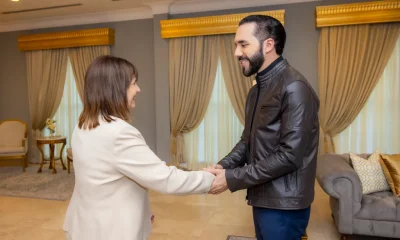Central America
Brazilian deputies visit Cecot and highlight security results
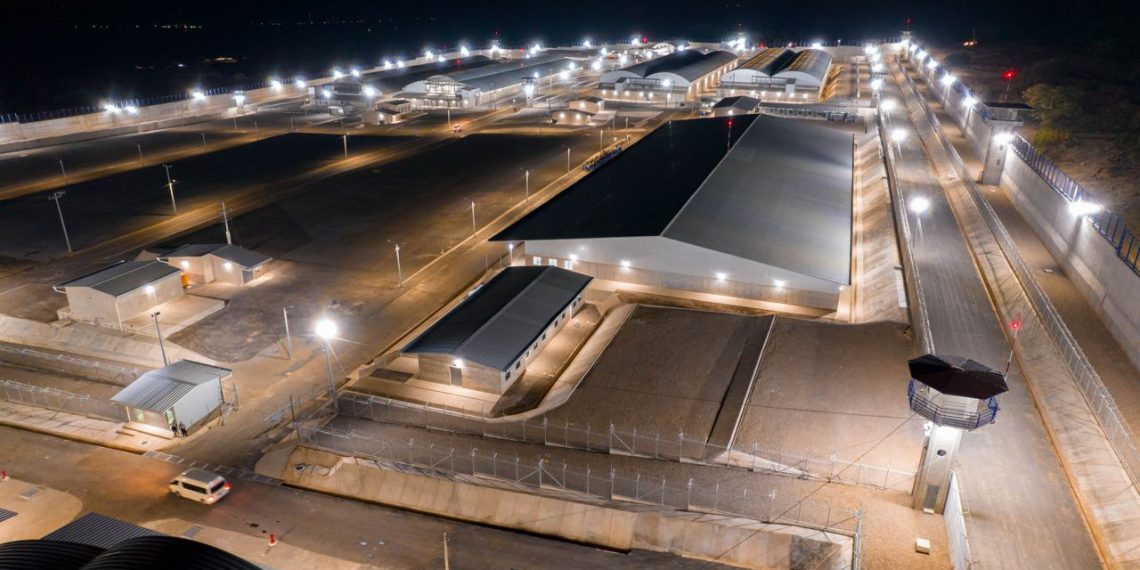
December 18 |
Brazilian federal deputy Eduardo Bolsonaro highlighted yesterday on social networks the security results obtained by the government of President Nayib Bukele. The Brazilian legislator was part of the delegation of seven parliamentarians who visited the country to see the Terrorism Confinement Center (Cecot) and all the security policies implemented in the last four years.
He also reiterated that President Bukele has a 90% approval rating from the population and that the security measures implemented with the Territorial Control Plan (PCT) and the exception regime have allowed El Salvador to accumulate more than 500 days without homicides during his administration, in which more than 75,000 criminals, mainly gang members, have also been arrested.
The implementation of security strategies, reforms to regulations so that criminals do not leave prisons, the alignment of powers and the dignification of the security forces are some of the aspects that Bolsonaro highlighted, so he reiterated that this has allowed President Bukele to achieve the transformation of El Salvador.
“What Nayib Bukele did is everything we proposed in terms of security in the Brazilian congress. The mentality is the same: arrested criminals do not commit crimes in society. With greater punishability, the economic theory of the criminal becomes more dangerous for him to commit a crime. Bukele managed to do this by electing a group of aligned parliamentarians and purging mainly the radical left in the elections,” Bolsonaro wrote in X.
The congressman stressed that, thanks to the exception regime, El Salvador went from being the most violent country in the world in 2015 to a benchmark in security and rivaling Switzerland for the number of homicides per 100,000 inhabitants.
“Today, if a police officer finds a notorious mafioso, he can arrest him for up to six months, the time the Public Prosecutor’s Office has to present the first evidence against the accused. The rule is that the accused responds to the arrested case (in Brazil it is the opposite). Between criminals and good people, today El Salvador cares about good citizens. That is why in Brazil there are criminals every day who have criminal records, who walk around the block and are arrested countless times; no longer in El Salvador,” he said.
President Bukele managed to decrease the criminal actions of gangs since he began his administration in 2019, and 2023 is about to close as the safest year in the history of El Salvador, an aspect that has paved the way for sectors such as the economy, tourism and education to develop and strengthen; to this effect the president considered important the dignification of law enforcement and has emphasized that none of the above would be possible without them.
Bolsonaro pointed out: “With more personnel, better salaries, with social security support, technology, support from the president and the population, as well as legal support, the police will fight the initial battle. Then comes social support: health, education, employment. Before, it made no sense to build schools in a gang-dominated area […]. Tourism also receives special attention as an economic engine.
Central America
Washington Imposes Visa Ban on La Modelo Director Amid Crackdown in Nicaragua

The United States government announced Wednesday that it has imposed visa restrictions on Roberto Clemente Guevara Gómez, director of Nicaragua’s largest prison, La Modelo, for his involvement in actions that violate human rights.
In a statement, U.S. Secretary of State Marco Rubio said the measure is intended to promote accountability for abuses committed under what he described as the “Murillo-Ortega dictatorship” against political prisoners.
Rubio specified that Guevara Gómez was designated for participating in “a gross violation of the human rights of a political prisoner.” The sanction was issued under the 2024 Department of State, Foreign Operations, and Related Programs Appropriations Act, which bars the sanctioned individual — and potentially immediate family members — from entering the United States.
“United States demands the immediate and unconditional release of all political prisoners unjustly detained in Nicaragua,” the statement added.
Ongoing tensions between Washington and Managua
Washington rejected Nicaragua’s November 2021 elections, in which President Daniel Ortega and his wife, now co-president Rosario Murillo, were reelected while seven potential challengers were in prison.
Relations between the two countries remain tense amid expanding U.S. sanctions and increasing diplomatic pressure on the Nicaraguan government.
On January 10, marking Ortega’s 19 years in power, Nicaragua released “dozens of detainees,” including political prisoners. The move came one day after the U.S. Embassy in Managua stated that “more than 60 people” remain “unjustly detained or disappeared” in the Central American nation.
U.S. officials have continued to push for the “unconditional release” of political prisoners rather than selective or temporary releases.
Ortega, 80, governs alongside Murillo with consolidated authority, having strengthened executive power through constitutional reforms and security measures, while the opposition has been weakened by imprisonment, exile, and the revocation of citizenship and property rights.
Central America
Guatemala’s Attorney General Consuelo Porras Loses Bid for Constitutional Court Seat

Guatemala’s attorney general, Consuelo Porras, who has been sanctioned by the United States over corruption allegations, lost a key vote on Monday in which a public university selected two of the 10 magistrates for the country’s highest constitutional court. However, she could still seek a seat through another nominating body.
The election of five full magistrates and five alternates to the Corte de Constitucionalidad (CC) is taking place gradually over more than two months and is considered crucial in the ongoing struggle for control of Guatemala’s judiciary, which critics say has long been influenced by a political and economic elite accused of corruption.
According to results announced at a press conference, the governing council of the Universidad de San Carlos de Guatemala (USAC) rejected Porras, who had applied as either a full or alternate magistrate, and instead chose two candidates aligned with the university rector. The vote was held at a hotel in Antigua, about 35 kilometers from the capital.
Despite the setback, Porras — whose term as attorney general ends on May 16 — could still be nominated to the Constitutional Court by the Corte Suprema de Justicia, which appoints two magistrates. The remaining six are selected by the president, the bar association and Congress.
“It’s always a possibility,” the 72-year-old lawyer said days earlier when asked by reporters whether she would seek nomination through another institution if she lost the USAC vote.
Porras has been sanctioned by Washington and the European Union for allegedly attempting two years ago to block the inauguration of President Bernardo Arévalo and for pursuing legal actions against anti-corruption prosecutors, judges, journalists and social leaders since taking office in 2018.
The USAC vote was controversial because most members of the university’s governing council are serving beyond the expiration of their terms. Students, academics and social activists staged protests against Porras’ candidacy.
Central America
Teens visit ETESAL substation to learn about responsible energy use

Within the framework of World Energy Day, teenagers from the institutional care center Ciudad Niñez y Adolescencia (CNA), run by the Consejo Nacional de la Primera Infancia, Niñez y Adolescencia (Conapina), took part in an educational visit to a substation operated by Empresa Transmisora de El Salvador (ETESAL) in Santa Ana.
The aim of the activity was to give participants first-hand knowledge of how the country’s electricity transmission system works and to highlight the importance of responsible energy use.
During the tour, the group learned about the process that delivers electricity to homes, businesses, and industries. They were also introduced to specialized technical equipment and the safety measures required to ensure an efficient and reliable service.
Before the guided visit, the teenagers attended two informative talks and an environmental awareness session focused on the relevance of responsible energy consumption and its impact on the environment.
According to Nelson Menjívar, head of Conapina’s programs unit, the initiative serves a dual purpose. “It has two objectives: a recreational component and an educational one, so that adolescents can learn about the work carried out by ETESAL and how some of the resources they use at home are generated. This is in keeping with the guarantees established under the Crecer Juntos law; we ensure those rights for children,” he said.
Menjívar stressed that these activities help young people better understand how essential services function in their daily lives while promoting efficient consumption habits and a culture of environmental respect and care.
The event is part of the principle of shared responsibility set out in the Crecer Juntos law, promoted by the administration of Nayib Bukele, which states that families, society, private companies, and the State must work together to safeguard the comprehensive well-being of children and adolescents.
-
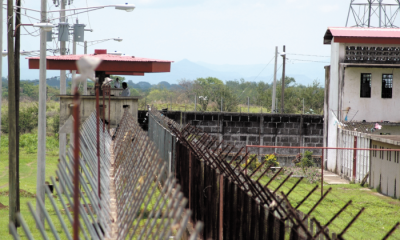
 Central America2 days ago
Central America2 days agoWashington Imposes Visa Ban on La Modelo Director Amid Crackdown in Nicaragua
-
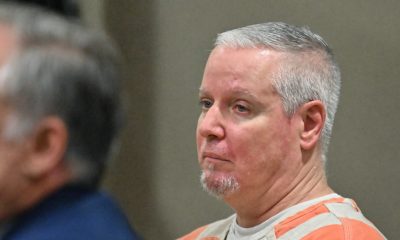
 International3 days ago
International3 days agoFather Faces Murder Charges in Georgia School Shooting Case
-
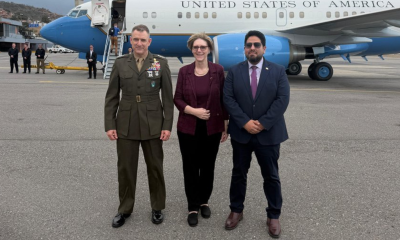
 International1 day ago
International1 day agoTop U.S. Military Commander Meets Interim Venezuelan Leaders After Maduro’s Capture
-
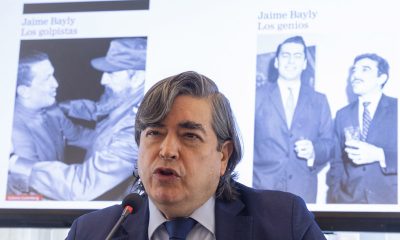
 International2 days ago
International2 days agoBayly Says Trump ‘Gets Along Better With Dictators’ and Criticizes U.S.–Venezuela Policy
-

 International2 days ago
International2 days agoRubio Engages in Quiet Discussions With Castro Family as U.S. Pressures Havana
-
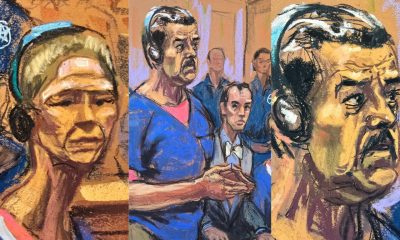
 International2 days ago
International2 days agoMaduro and Cilia Flores Receive Consular Visit in U.S. Jail Ahead of March 26 Hearing
-

 International3 days ago
International3 days agoSpanish Government Targets ‘Big Tech Impunity’ in AI Image Scandal
-
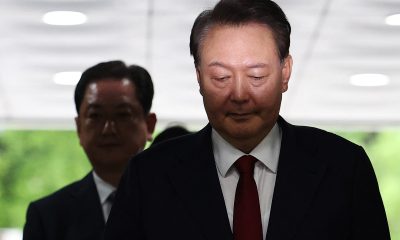
 Sin categoría1 day ago
Sin categoría1 day agoFormer South Korean President Yoon Suk-yeol Sentenced to Life for Insurrection
-
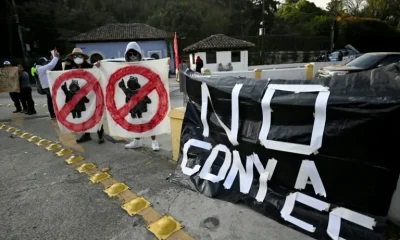
 Central America4 days ago
Central America4 days agoGuatemala’s Attorney General Consuelo Porras Loses Bid for Constitutional Court Seat













































